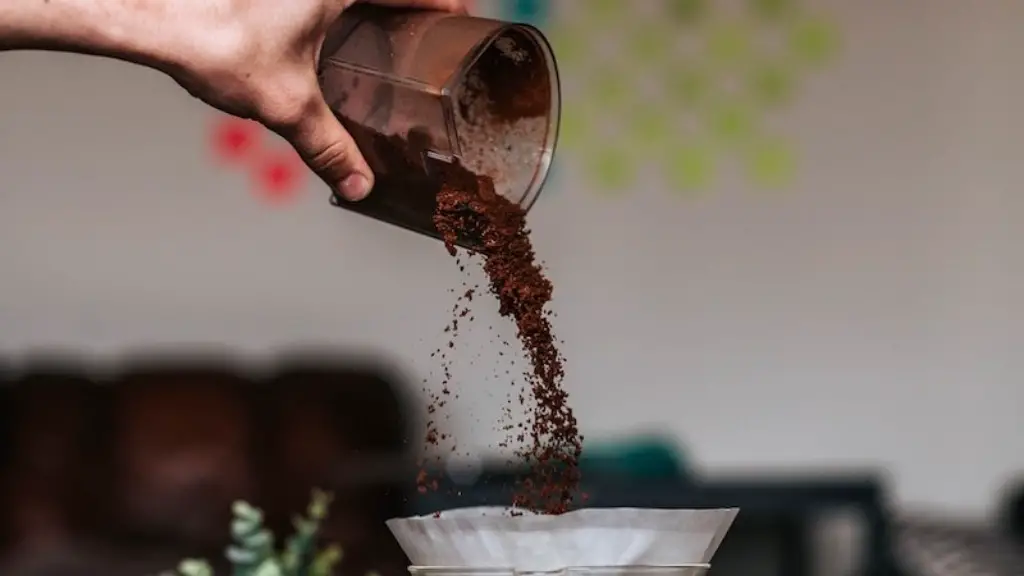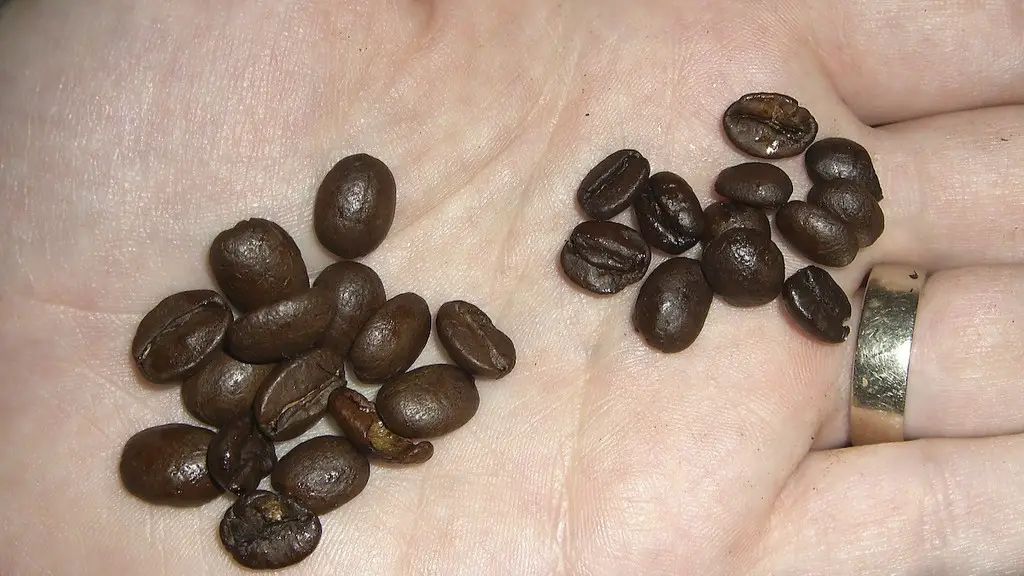Kidney stones are a relatively common condition, affecting both men and women. Most kidney stones are composed of calcium oxalate, but they can also be comprised of struvite, uric acid, and cystine. Drinking coffee can be a problem if it increases the chances of stones forming or aggravates existing stones. So, is it okay to drink coffee with kidney stones?
The answer isn’t so clear-cut. Some studies suggest that coffee consumption may be associated with an increased risk of kidney stones due to its high levels of oxalate, a naturally occurring compound that’s been linked to stone formation. But other research contends that coffee may have an beneficial effect on kidney stones by acting as a diuretic, increasing water excretion and aiding in stone passage.
To further complicate matters, there are certain other factors that can impact the link between drinking coffee and kidney stones. For example, one study found that the amount of caffeine in the coffee and whether or not it’s decaffeinated both play a role in whether or not it can increase a person’s risk of developing kidney stones.
For those who already have kidney stones, it’s important to talk to a doctor before making any dietary changes. Depending on the type and severity of your stones, your doctor may recommend avoiding caffeinated beverages altogether. In some cases, they may suggest limiting the amount you drink, or substituting decaffeinated coffee for a milder option.
Ultimately, the decision whether to drink coffee with kidney stones or not is a personal one. Before making any changes to your diet, it’s best to consult a physician and consider what will work best for your specific situation.
Effects of Coffee on Other Health Conditions
In addition to its potential effects on kidney stones, coffee has also been linked to other health conditions. Some studies suggest that drinking coffee may be beneficial in reducing the risk of type 2 diabetes, reducing the risk of Parkinson’s Disease, and lowering a person’s risk of stroke. However, the amount and type of coffee consumed are key factors in determining its potential health benefits.
For example, several studies suggest that light to moderate coffee consumption is associated with positive health outcomes, while an excessive intake may have the opposite effect. Furthermore, heavy drinkers of caffeinated coffee may be subject to higher levels of sugar and fat absorption, potentially leading to obesity, heart problems, and other health risks.
It’s also worth noting that, like many foods and beverages, coffee can cause adverse reactions in certain individuals. Common side effects include increased heart rate, headaches, and difficulty sleeping. People who suffer from anxiety or other mental health conditions may want to avoid drinking coffee or limit the amount they consume.
Overall, it’s important to factor in the potential health impacts of drinking coffee when deciding whether or not to include it in your diet. If you’re concerned about your intake or the impact of coffee on your existing health conditions, it’s best to talk to a doctor or nutritionist.
Impact on Hydration
In addition to its potential effects on kidney stones, coffee also has implications for hydration. As a diuretic, coffee can increase water excretion and lead to dehydration. This can be especially problematic for those who already have kidney stones, as it increases the chances of stones forming or getting larger.
In general, it’s advisable for those with kidney stones to drink plenty of fluids throughout the day, especially water. But for those who like to drink coffee, the key is finding a balance between the amount of coffee consumed and the amount of water drank throughout the day.
Additionally, it’s important to be aware that coffee isn’t the only beverage that can potentially lead to dehydration. Alcohol, soda, and energy drinks can also contribute to dehydration and should be consumed in moderation.
Overall, drinking plenty of water throughout the day is an important practice for anyone, particularly those with kidney stones. But those who like to drink coffee should be aware of the potential effects on hydration and make sure to drink enough water throughout the day.
Interaction with Medication
Another factor that may influence whether it’s safe to drink coffee with kidney stones is its interaction with any medications you may be taking. Many medications, including those used to treat urinary problems and kidney stones, can interact with caffeine and cause unwanted side effects.
It’s important to be aware of how coffee may interact with your existing medications, as well as any new medications or supplements you may be taking. Before starting a new medication or supplement it’s best to speak with a doctor or pharmacist to make sure it won’t interact with any existing medications, including caffeine.
Overall, it’s important to take into account the potential interactions between coffee and any medications you may be taking. Once again, talking to a doctor or pharmacist is advised to ensure the safest combination of coffee and any medications used to treat kidney stones or other health issues.
Coffee Alternatives for Kidney Stones
For those who like the flavor of coffee but don’t want the potential risk associated with drinking it with kidney stones, there are several alternatives that may provide the same satisfaction without the adverse effects. Subtly flavored teas, herbal drinks, and decaffeinated Coffees are all potential substitutes.
Drinking these beverages can still provide some of the same benefits as coffee, such as a source of antioxidants and other essential nutrients, without compromising on safety and comfort. Furthermore, adding a few drops of milk or a gentle sweetener can give them an even better taste.
For those who are looking for something with a similar texture and flavor to coffee, there are plenty of options. Instant coffee mixes, milk substitutes, and other drinks all offer distinct flavors and textures that aren’t too far removed from the real thing.
In conclusion, when deciding whether to drink coffee with kidney stones, there are many factors to consider. But it’s important to include all relevant information, such as potential health risks, interactions with medication, and hydration effects, to make an informed decision about what works best for you.
Additional Factors to Consider
In addition to the potential health risks and effects on medication and hydration, there are other factors to consider when deciding whether to drink coffee with kidney stones. Depending on a person’s lifestyle and how they prepare their coffee, there may be other possible complications to keep in mind.
For example, the type of coffee beans and the method used to prepare the coffee can have an impact on the potential health effects. Some studies suggest that organically grown, unroasted coffee beans, for example, may contain more antioxidants than conventional options.
Another factor is the method of preparation. Filter-brewed coffee, for example, may contain fewer oils and other compounds that can increase the risk of kidney stones. And espresso-based beverages, such as cappuccinos, contain much more caffeine than regular coffee.
Overall, it’s important to consider all of these potential complications before deciding whether to drink coffee with kidney stones. Doing so can help you make an informed decision that takes into account not just the potential risks, but also the type of coffee and how it’s prepared.
Good Practices for Safe Coffee
Finally, there are several practices that can help ensure coffee is consumed safely. For those who don’t want to avoid coffee altogether, there are a few things that can be done to minimize the potential risks of drinking coffee with kidney stones.
Limit the amount of coffee you drink each day, and choose coffee brands that are low in additives and sugar. Additionally, opt for filtered coffee instead of espresso-based drinks and use a paper filter rather than a metal one, as this may reduce the amount of oils and other compounds that can increase the risk of kidney stones.
Finally, for those who like to drink cappuccinos or other espresso-based beverages, consider reducing the amount of sugar and other additives used. Additionally, always be sure to choose fresh ingredients and avoid reheating coffee that has already been prepared.
Overall, drinking coffee with kidney stones can be complicated, and it’s important to take into account all relevant factors before making a decision. But with the right knowledge and preparation, it’s possible to enjoy coffee safely.





